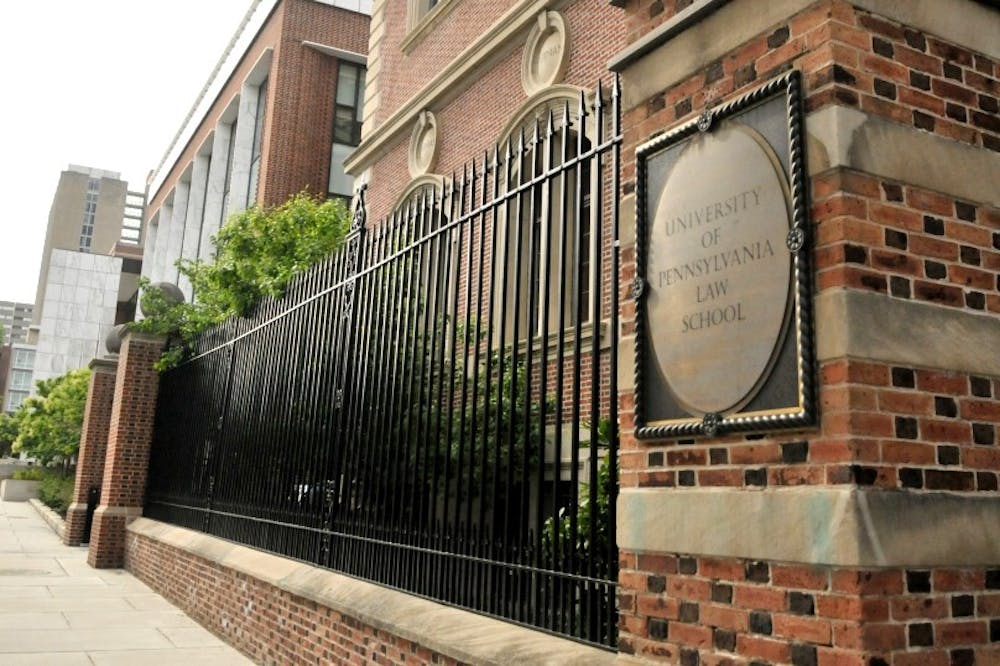
The Penn signatories to the letter were Mitchell Berman, Jessica Feierman, Jonah B. Gelbach, Sarah Barringer Gordon, Serena Mayeri, Jennifer Nagda and David Rudovsky. | DP File Photo
Applying to law school seems scary. There are standardized tests to take, letters of recommendation to receive, essays to write and resumes to fill. But what is difficult for many students is the application process.
By the end of January, Penn Law School early decision applicants will all have their decisions. Like other law schools, Penn offers Early Decision Round 1 and Early Decision Round 2.
The Associate Dean for Admissions and Financial Aid at Penn Law, Renee Post, said that Penn Law “instituted Early Decision [Round] 2 a number of years ago at the request of applicants who couldn’t take the October LSAT and wanted to take the December test.”
Penn Law releases its decisions on a rolling basis, but all early decision applicants will know by the end of January.
Should Penn students choose to apply early decision?
Todd Rothman, the senior associate director of Penn’s Graduate and Professional School Advising Unit and the Pre-Law advisor says that Penn “really has to be your first choice.” Early decision comes with a binding contract, and students forfeit the chance to compare financial aid packages.
During the 2013-14 school year, around 219 Penn seniors and alumni applied to law schools. According to Rothman, this figure is lower than it was eight years ago.
Do Penn students have an advantage in applying to Penn Law?
“Penn Law School really likes Penn undergraduate students. They’re familiar with the rigor, they’re familiar with how challenging many of these courses are, they’re even familiar sometimes with professors. And because our university is one where all of the undergraduate and graduate schools are on the same campus, I think they view it as an advantage because if you are a good fit and really liked Penn as an undergrad, they believe you’ll probably be a good fit and like Penn for law school.”
According to Dean Post, “Penn is our largest feeder institution.” Penn Law and Mr. Rothman “work really closely together so that Penn undergrads know the law school encourages them to apply,” he said.
First-year law student Josh Spector mentioned how well Penn prepared him for law school. “Academically and socially, Penn Law is a different experience than Penn undergrad, but coming from Penn undergrad definitely made for a smoother transition.”
What makes a good application?
Taking rigorous and upper-level classes as an undergrad can also help prepare students for law school.
“Taking classes where I was expected to read 300-400 pages of academic literature a week prepared me for the workload of law school,” Spector said.
Rothman stressed the importance of academics, including how rigorous the students’ courses were as well as the number of upper-level classes taken. Students must also demonstrate involvement on campus and be “more than just a passive member” of organizations, Rothman said.
Dean Post says the admissions team looks for “potential, curiosity, leadership, commitment, academic achievement and students who are committed to their community.”
“My strong advice for the Penn community, is to work with Todd Rothman and his team to develop a strong application. Penn students are uniquely positioned with the resources available,” Post said.
The Daily Pennsylvanian is an independent, student-run newspaper. Please consider making a donation to support the coverage that shapes the University. Your generosity ensures a future of strong journalism at Penn.
DonatePlease note All comments are eligible for publication in The Daily Pennsylvanian.




